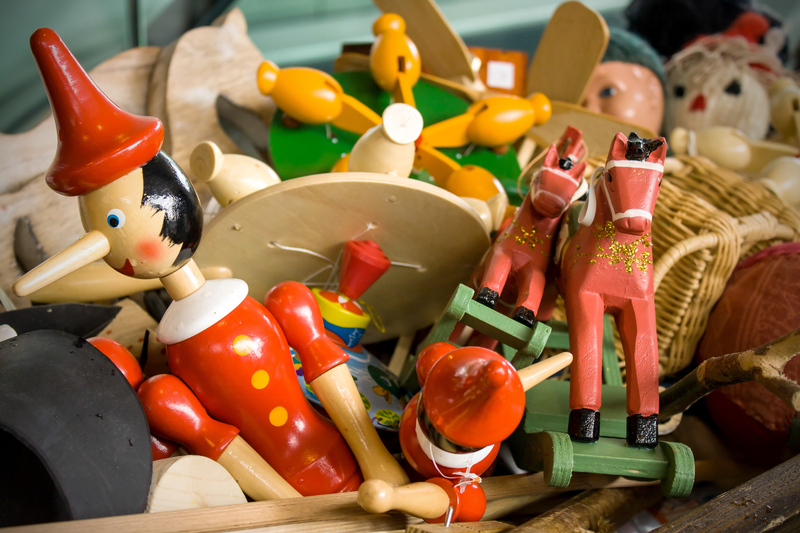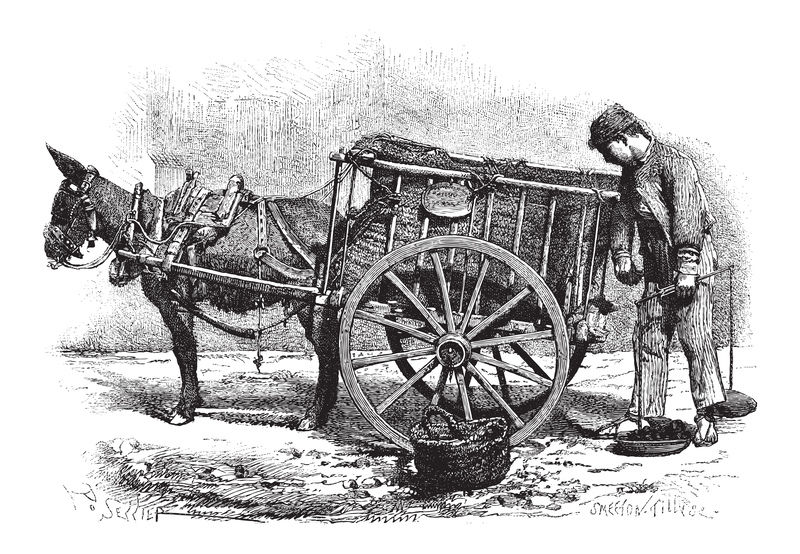Time-Saving Tips for Properly Disposing of Garden Debris
Posted on 06/08/2024
Gardening can be a great way to connect with nature and maintain a beautiful outdoor space. However, as any gardener knows, it also comes with its fair share of maintenance tasks. One of the most tedious and time-consuming tasks is dealing with garden debris. Whether it's fallen leaves, trimmed branches, or dead plants, disposing of garden debris can be a never-ending chore. But fear not, because we have some time-saving tips to help you properly dispose of your garden debris.
1. Invest in a Shredder
One of the best investments you can make for your gardening arsenal is a shredder. This handy tool can easily shred any organic material such as leaves, twigs, and small branches into mulch or compost. This saves you the hassle of manually breaking down larger pieces of debris and makes them easier to dispose of or use in your garden.

2. Create Compost Piles
Speaking of compost, setting up designated compost piles in your garden is another smart way to deal with garden debris. Instead of throwing away all your plant clippings and leftovers from vegetable gardens, you can turn them into nutrient-rich soil for your plants. Not only does this save time and energy on disposal, but it also adds nutrients back into the soil instead of sending them to the landfill.
3. Use Biodegradable Bags
For smaller pieces of debris that cannot be composted or shredded, opt for biodegradable bags instead of plastic ones. These bags will break down naturally over time and won't contribute to pollution in landfills. Plus, they'll save you the trouble of sorting through plastic bags to separate organic waste from non-biodegradable materials.
4. Try "Green" Disposal Methods
If you don't have a compost pile or shredder available, consider exploring some eco-friendly disposal methods for your garden debris. For example, some communities offer curbside collection for yard waste, which is then taken to composting facilities. You can also look into local landscaping companies that will collect and recycle your garden debris for a small fee.
5. Implement Preventative Measures
One of the best time-saving tips for disposing of garden debris is to prevent it from accumulating in the first place. Regularly pruning and trimming plants can help reduce the amount of debris that needs to be collected and disposed of. Additionally, using mulch around plants can help suppress weed growth, reducing the need for manual weeding and ultimately creating less debris.

6. Plan Ahead for Fall Clean-Up
Fall is often the busiest time for garden clean-up as trees start shedding their leaves and plants die off. To save yourself time and stress, plan ahead by scheduling specific days or weekends for fall clean-up tasks. This will also give you a chance to prioritize what needs to be disposed of immediately and what can wait until later.
Pros:
Save time and energy on manually disposing of garden debris.
Create nutrient-rich soil for your garden with composting.
Reduce pollution and waste by using biodegradable bags.
Support eco-friendly disposal methods.
Prevent future accumulation of garden debris by implementing preventative measures.
Plan ahead to minimize stress during busy fall clean-up season.
Cons:
Investing in a shredder or setting up compost piles may require some upfront cost.
Some communities may not offer curbside yard waste collection, making it more challenging to dispose of larger amounts of debris.
Time and effort must be put into regularly maintaining compost piles.
Takeaways:
1. Consider investing in a shredder to make it easier to dispose of garden debris.
2. Create compost piles in your garden to turn organic material into nutrient-rich soil.
3. Use biodegradable bags or explore "green" disposal methods to reduce pollution and waste.
4. Implement preventative measures such as regular pruning and mulching to minimize future accumulation of debris.
5. Plan ahead for fall clean-up to save time and stress.
Conclusion:
Properly disposing of garden debris is essential not only for the aesthetics of your outdoor space but also for the health and sustainability of your garden. By following these time-saving tips, you can efficiently manage and dispose of garden debris while also benefiting your garden in the process. Whether it's investing in a shredder or setting up compost piles, there are many solutions available to make this task less daunting and more environmentally friendly. So put away those plastic bags and start incorporating these tips into your gardening routine today. Your back (and the environment) will thank you.
Latest Posts
Enhance Business Efficiency with Waste Collection

